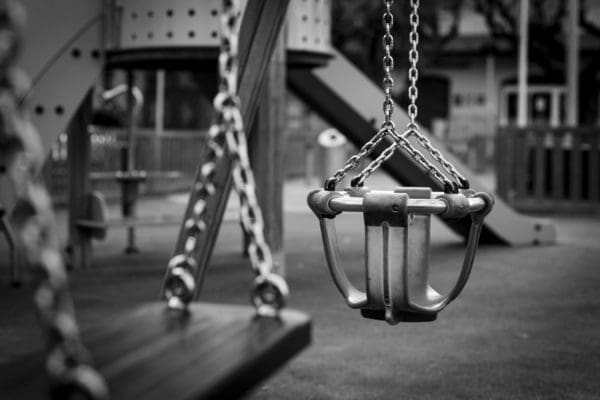Why You Should Still Visit the Playground This Winter

When the chilly air sets in, most people find themselves indoors, cozied up next to a warm fire. This situation seems particularly accurate for children whose playtime becomes suddenly restricted to being inside.
According to the Centers for Disease Control and Prevention (CDC), school-aged children need about 60 minutes of physical activity every day. Kids between 3 and 5 years old should be active throughout the day, as well.
Parents may sometimes feel their kids won’t want to go outside when it’s cold or worry that they may get sick. Others may not know what to do with them when a layer of fluffy, white snow covers their backyard. Regardless, physical activity remains a critical part of a child’s growth.
Every season offers unique opportunities for play and learning — winter months are no different.
Visiting the playground during the winter allows your child to be physically active and encourages their continued emotional, social, and cognitive development.
Here are five reasons it’s important to let your child play at the playground this winter.
- Emotional Benefits
Playground play provides emotional benefits to your child, from learning self-regulation to growing awareness of their feelings, such as irritation or excitement.
Research shows that playing outside has an increased positive effect on emotions. Other studies have highlighted the impact of outdoor play on promoting better mental health and a greater ability to cope with stress triggers.
Unstructured play enables children to understand new concepts related to their emotional development, like making rules, sharing, and leading or following.
- Improved Social Skills
While playing at a playground, children can interact with other kids their own age or those who may be older or younger than them. These interactions lead to the development of key social skills: listening to others, picking up on social cues, developing empathy, and learning new perspectives.
Socializing during playtime also encourages children to express themselves in various ways. For example, social play can teach children how to become team players and improve their negotiating and compromising skills.
As your child develops their social skills through outdoor play, they can more easily express their positive and negative emotions. Social and emotional skills play an essential role in building friendships and improving their emotional well-being.
- Enhanced Imagination
Children gain enhanced sensory experiences from playgrounds. This type of play environment also promotes imagination and creativity.
When children partake in make-believe or pretend play, either in a group or by themselves, they learn how to face their fears, improve their problem-solving skills and attempt various if-then scenarios.
Playground designers have recognized the importance of imaginative play in child development and have revamped structures to reflect this. For example, themed playgrounds have become more common throughout neighborhood parks and often set the scene for children to let their imaginations run wild. Equipment may provide a farm, outer space, or pirate ship backdrop while including bright colors and props tailored for different ages.
- Cognitive Development
Outdoor play promotes cognitive development in children. Cognition pertains to your child’s ability to think and make sense of information. It’s also related to learning reasoning skills, improving memory, and developing language.
Playgrounds provide children with many opportunities to enhance their cognitive development through movement, observation, and touch. In fact, many designers keep this in mind when they build structures, props, and equipment. These items may offer various textures for different sensory and motor experiences while also fostering curiosity in nature.
The cognitive benefits of playground play also include increasing focus and spatial awareness for developing motor development. For example, swinging across the monkey bars or climbing stairs to go down the slide requires kids to concentrate on height, distance, and area.
- Physical Health
Kids tend to sit with their devices indoors when the weather turns cold, negatively impacting their physical development and overall well-being. Naturally, the physical benefits of outdoor play — even in the winter — are probably most apparent.
Staying physically healthy can help with the following:
- Enhance bone and muscle strength
- Decrease the chances of developing obesity
- Reduce risk factors for chronic illnesses
- Promote quality sleep
Playgrounds offer kids a safe and actionable environment to run, walk, climb, swing, and jump. In colder weather, stationary or portable equipment enables children to build their physical endurance year-round.
Studies show that children and adolescents who are physically active are more likely to stay that way as they get older. By visiting playgrounds in the winter, kids can learn healthy lifestyle habits they can take with them into adulthood.
The Importance of Playgrounds in the Winter
Children need fresh air and physical activity even in the winter. It’s essential for their growth and development.
Bundle them up, slip on their snow boots and enjoy the time spent with them outdoors this winter. Maybe you can even join them on the swings.









